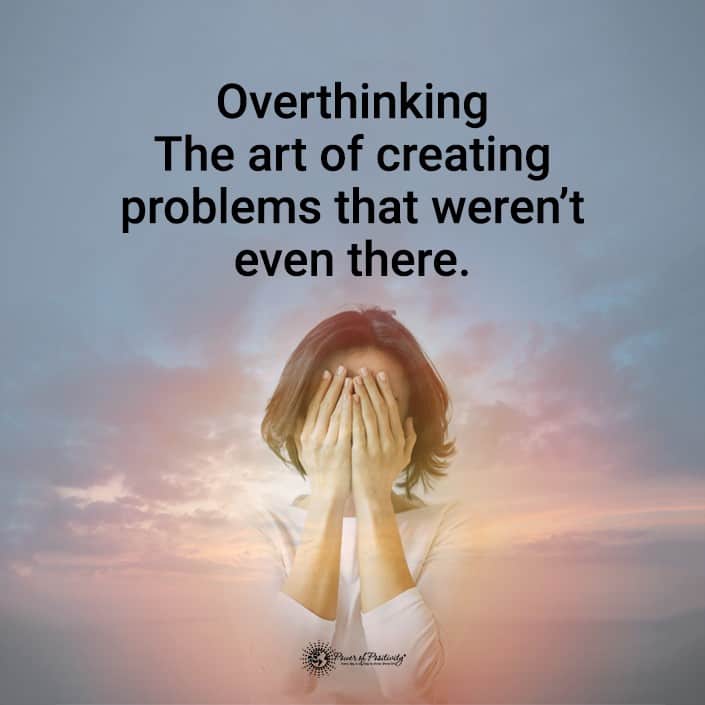Unfortunately, our modern world presents many stress triggers for us to deal with daily. While we have more conveniences than people did in the old days, they come with a price. We work more hours to afford a higher quality of life, and therefore, our stress increases. Along with work, we must juggle other aspects of life such as family, friends, chores, and bills.
It seems as though most of us don’t have any time left over for ourselves at the end of the day. How can we handle all of this stress, so it doesn’t overpower us? Knowing our stress triggers can help us mitigate the challenges of daily life and sail smoothly over the waves. Even if life feels overwhelming sometimes, solutions can present themselves in surprising ways if we learn to look within.
Stress isn’t always a bad thing, but it can wreak havoc on our nervous systems in the long-term. Chronic stress affects millions of adults in today’s world, and sadly, it only seems to be getting worse. The American Psychological Association calls stress a “national mental health crisis,” saying that many factors contribute to it. Along with distress about jobs, healthcare, climate change, and uncertainty about the future, the pandemic has greatly exacerbated people’s stress levels.
While we can’t control the world around us, we can choose how to react to situations. By remaining calm within, it can help us navigate the world much easier. As the quote says: “Ships don’t sink because of the water around them. Ships sink because of the water that gets in them. Don’t let what’s happening around you get inside you and weigh you down.”
Finding out your stress triggers
This 5-minute quiz by Psychology Today can help you learn what triggers your stress response. This way, you can better handle the situations life throws at you by preparing ahead. For instance, if you find that work causes you distress, write down a list of your triggers. Does a negative coworker bring you down? Does your workload seem like more than you can handle?By simply becoming aware of our stress source, we can learn coping skills to stay on top of it. We can’t always remove the stress from our lives, but we can learn effective ways of managing it. Oftentimes, it isn’t a particular situation that causes negative feelings but our reaction to it. Choosing to approach life with evenmindedness and non-attachment can help alleviate stress and negativity.
However, it would be best to analyze what stress you can eliminate or lessen in your life. For example, if your job causes you undue tension and anxiety, perhaps look for something else in your field. Or, if a coworker or your boss makes you feel uneasy, don’t hesitate to talk with them. They may not know how their energy affects other people, so talking gently with them may help.
Once you find out what triggers you, write down possible solutions to your problems. You can use the example above or come up with your own strategies to mitigate stress. Your main stress may not come from work at all, although that’s the most common source, according to studies. Perhaps family life, chores, or your spouse causes you the most distress.
Most of the time, having a heart-to-heart with those closest to you can solve the issues. The people around you should help lessen your stress, not add to it. If you feel overwhelmed, don’t hesitate to reach out for help from those who care most about you.
4 Ways to handle stress in your daily life
After learning your stress triggers, you can start learning ways to cope. As we said, you may not be able to eliminate your stress source, but you can choose how to react. Here are some of the best ways to handle the onslaught of stress in our lives:
- Set boundaries. You should feel comfortable saying ‘no’ when you have to, and not feel guilty about it. If you don’t tell others your boundaries, they will continually step over them. They may not do this on purpose, of course; they don’t know any better. However, once you express your feelings, stand your ground and hold the boundary.
- Have set times to recharge. When your kids go to sleep or leave for school, create a small window of time for yourself. Use this time to meditate, have tea and read, or exercise before going to work or bed. In our busy world, all of us need to reconnect with ourselves. Having daily downtime will help you stay grounded and feel more capable of tackling challenges.
- Exercise regularly. Countless studies have shown the mental and physical health benefits of working out. Not only does it help keep stress under control, but it eliminates inflammation, which can lead to chronic disease. Make sure to do at least 150 minutes per week of moderate to intense physical activity.
- Meditate, do yoga, and practice deep breathing. Along with the above tips, a regular meditation or yoga practice can do wonders for your health. These practices can help you stay centered and keep stress at bay. Also, deep breathing helps eliminate toxins and balance your sympathetic nervous system.
Final thoughts: figuring out your stress triggers can help you release tension in your life
If you don’t know what causes you stress, you can’t start working on ways to relieve it. Finding out the sources of tension or unease in your life will help you handle the situations better. Once you learn your stress triggers, you should develop an action plan for easing your stress. This may involve walking away from negative circumstances or having a talk with those causing the stress.
Either way, everyone should assess their lives and stress levels periodically to see where they stand. We all deserve to feel healthy and happy, and keeping our stress low is essential to a balanced life.
















 Community
Community

